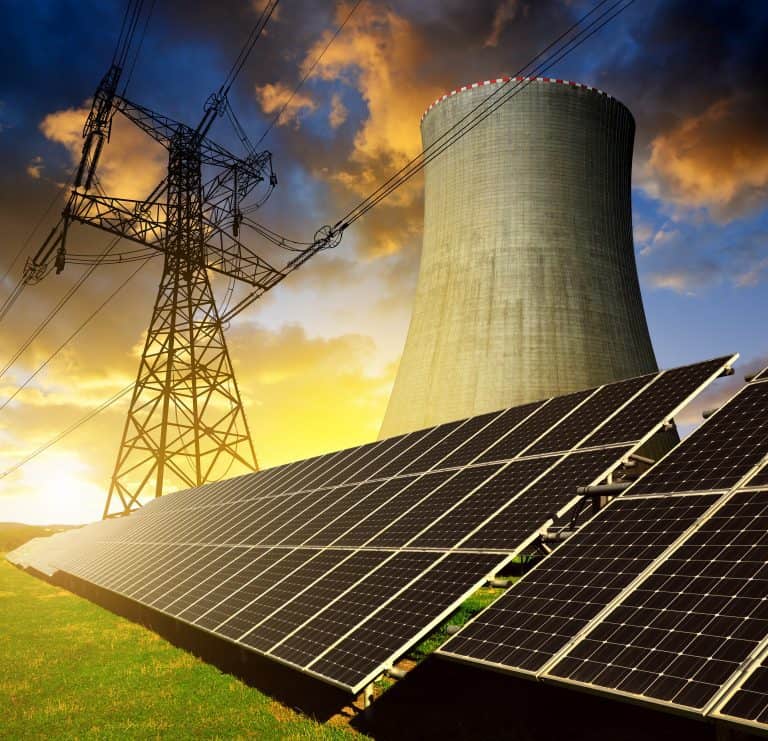In the Adoption of Cleantech, the Carrot May Be More Effective Than the Stick

That’s why some of the best reads in the cleantech genre are those that convey the benefits in terms of the 21st Century economy. As we’ve all heard, it’s possible to “do well while doing good.”
There are so many tragedies unfolding in the United States today: that facts no longer matter, the notion that humanitarianism is a luxury we cannot afford, the tolerance of overt expressions of racism, and our indifference towards the collapse of the eco-sphere. But perhaps the most inexcusable is our lackluster participation in cleantech, the defining industry of our day.
Here’s a blurb on the book “Falling Behind On Green Tech” by John Doerr and Jeff Immelt:
America confronts three interrelated crises: an economic crisis, a climate crisis and an energy security crisis. We believe there’s a fourth: a competitiveness crisis. This crisis is particularly evident in America’s worldwide standing in the next great global industry, green technology. There is no topic of greater importance to America’s economic future. The question is whether the United States will lead or lag in tomorrow’s global energy markets. And the difference between these two futures is dramatic.
Energy in the United States costs more than $1 trillion a year — for oil, coal, natural gas, nuclear and renewables. This is on top of a similar sum spent on the things that use this energy — our homes, shops, factories and cars. That means about $2 trillion a year is at stake right here.
Do we want to win the race to lead the next great global industry, clean energy? That is the choice before us. We are clearly not in the lead today. That position is held by China, which understands the importance of controlling its energy future. China’s commitment to developing clean energy technologies and markets is breathtaking.
Consider: Chinese cars are more than one-third more fuel-efficient than U.S. cars. China is investing 10 times as much on clean power, as a percentage of gross domestic product, as the United States is. China is on track to create 150,000 jobs through the deployment of 120 gigawatts of wind power by 2020 — an amount equivalent to today’s global total and nearly five times America’s. As a result, China is already curbing its carbon emissions substantially. This year alone, it will abate almost 350 million tons of CO2, as compared with business as usual. That’s as much as is emitted by Argentina.
Great stuff.
Here’s an idea: The U.S. could adopt the same policy that exists in developed countries all over the globe, i.e., that we’re phasing out fossil fuels at the maximum feasible rate, and that we’re supporting the development of technology that facilitates this transition. Exactly, how hard would that be? Unless you’re an oil company, what would be the downside?

Craig,
The opening sentences of your article surprised me. I hoped you had experienced an epiphany and returned to a realistic and practical approach to clean energy advancement.
But alas, as you developed your theme, you returned to the same old rhetoric of the crusading ideologue, citing absurdly inaccurate sources as justification.
No, China (at least the PRC) is not a nation striving to become more environmentally aware, just investing in better propaganda!
John Doerr and Jeff Immelt’s publication is so inaccurate and fantastic, it’s impossible to list all their mistakes and naivete in adopting Chinese propaganda as unchallenged “fact”, in a short few paragraphs.
Clean tech adoption struggles with a lack of credibility caused by irresponsible advocates passing off ideological wish lists as practical technology, while ignoring or opposing any new technology considered ‘imperfect’ from an ideological perspective.
Craig,
Today Forbes published an article on the need for Clean Coal technology, in the article was a quote from U.S. Energy Secretary Steven Chu during the 2012 election campaign:
“Advancing the development of clean coal technologies is an essential part of President Obama’s strategy to develop every source of American energy and ensure the United States leads the world in the global clean energy race and continues to take advantage of domestic resources here at home”.
Of course, once returned to office, President Obama (in contrast to the current President) promptly broke this promise and continued his campaign against the US Coal Industry, diverting funds away from Clean Coal technology, blocking research and permits.
Despite paying lip service to the IEA report he received which stated;
“Combined with CCS, HELE technologies also can cut global average CO2 emissions from coal plants by as much as 90 percent.”
President Obama actively opposed the introduction of CCS and HELE in the US as undesirable since it would help make US coal more competitive, even to the extent of allowing US taxpayer funded research and technology to relocate to China in order to attract investment funding.
The Obama administration lied to the American people, and the world in 2016 at the signing of the Paris Peace accord, despite receiving a report from the President of the World Bank Jim Yong Kim, stating,:
” If we find ourselves in a situation…where we say no coal…then we’re really not serious…. We can’t say to African leaders well because of our other concerns, you’re going to have wait on getting energy…we have to look at every single option…we know that intermittent energy has never led to economic development in any other country,”
In 2012, President Obama campaign received concealed donations of more than $30 million from renewable energy industry, while renewable interest lobby groups spent more than $42 million in supporting Obama indirectly.
This week in the US, when all other sources of energy faltered in the extreme cold (even natural gas), coal fired power proved resilient. Cold kept the lights on when all others failed.
But, no of these events will bother those Californians smugly warm and secure in dreams of fantasy.